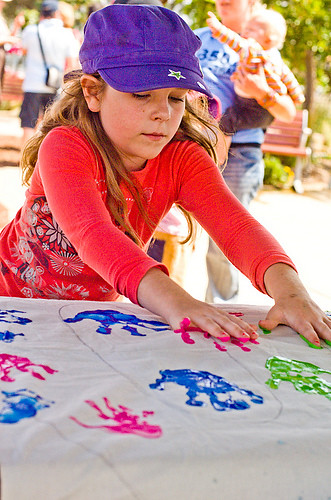Examining the French school system – outdated or timeless?

In France, children start school as young as two or three years of age, meaning that amongst other things, they need to be well and truly toilet trained prior to this.
And once they make it to school, French children aren’t given too much of a chance to settle in and get comfortable, as they’ll likely be changing schools in just a few short years.
The French school system is split into maternelle (ages three to six), école primaire (seven to eleven), collège (twelve to fifteen) and lycée (sixteen to eighteen). By the time a French pupil completes their baccalauréat, they may well have changed schools four times.
By contrast, Australian students attend just two different schools, primary school (ages five to twelve) and high school (thirteen to eighteen), and often retain a good portion of their friendship group throughout.
Concrete facts beat creativity in France

Conversely, in French schools the focus tends to be on the more concrete subjects of maths, French and history, with art and other less finite subjects receiving second billing.¹
Sport is included in the French school week and Wednesday afternoons are free for any number of privately arranged lessons. Lunchtime, however, is firmly focused upon the act of eating, with less time and value placed upon outside play.
I consider this not a flaw of the French system, rather I think that sit-down school lunches may be instrumental in teaching children to eat properly and appreciate food at a young age. This may well lay the foundations for a healthy relationship with food that accompanies the French well into adulthood.
Rote learning a feature of French schools
In French schools, repetition, and recitation of rote-learned material is common from a very young age, with less emphasis given to analysis and critical thinking and little opportunity for interactive learning.

“…because rote learning does not teach a child to think or to question, the French education system produces people who have all been trained to think in the same way and, therefore, does not produce enough innovators and entrepreneurs for a 21st century economy.”²
The undeniably positive result of this system is that you end up with a well-educated population who can speak eloquently on topics of philosophy, literature and the sciences. More than once I have felt out of my depth at dinner parties where the French attendees are confidently discussing Voltaire and Descartes and can demonstrate an intimate familiarity with the works of Molière. My critical comparison of ‘Pride and Prejudice’ and ‘Bridget Jones’ Diary’ just doesn’t quite hold up in these situations.
Which system do you think better equips children for later life?
References:1. French Schools and Education in France via France This Way
2. Why you should say no to rote learning by Maria C Collins for Helium Sept 20, 2009 Image credits:
1. Scott Smith (SRisonS) on Flickr.
2. 350.org on Flickr.
3. Bart Vermeersch on Flickr.
4. noodlepie on Flickr.
5. Sidsel-Marie on Flickr.
Note: This popular article has been refreshed and republished in 2020.









Hi Alison,
Thanks for your article.
I don’t know how to answer your question. Because I only went to French School and I don’t feel it was a bad experience. 🙂
However, a good thing to say would be “don’t be frightened to send you kid to a French school. he/she won’t loose its creativity”. I often hear mums wondering: “Is this going to be bad for my kid?”
I’d say that going from one educating system to another would be a great experience, to actually compare, and take the best of each. To end up richer of 2 cultures.
Cheers!
Géraldine
yourvieenrose.com
Geraldine, thanks for your comment. ANd yes the blend sounds as if it would be brilliant!
Judy
Hi Géraldine, thank you very much for your comment!
I definitely don’t think that the French system is bad – just different 🙂
And I agree, you are absolutely right that a mix of the two systems would be the ideal choice.
Thanks!
Well Alison, you don’t think French system is bad…just reread your text. Definitely quite critical and not positive at all! :-D. I’m sure it’s not all pink and wonderful and Australia, and all so bad in France when it comes to schooling and education 😉
Hello Mary
I’m glad you commented… but Gosh, I seem to have read a different article to you… I didn’t find this positive or negative toward France or Australia. I actually saw this as a compare and contrast exercise and I think the differences are well described. I’ve never been directly exposed to the French system, but I see some awesome features of that system and agree with Alison’s comments about the grounding in literature, debating and the like.
By the way I don’t think schooling in Australia is all that great at all! and Alsion has lived in Paris for more that a decade, perhaps you could look her up and have an interesting discussion.
Thanks
Judy